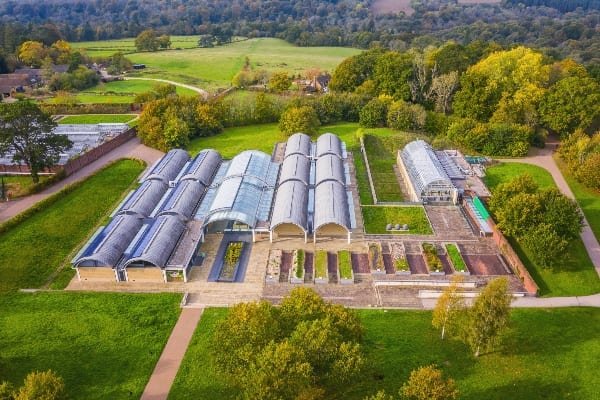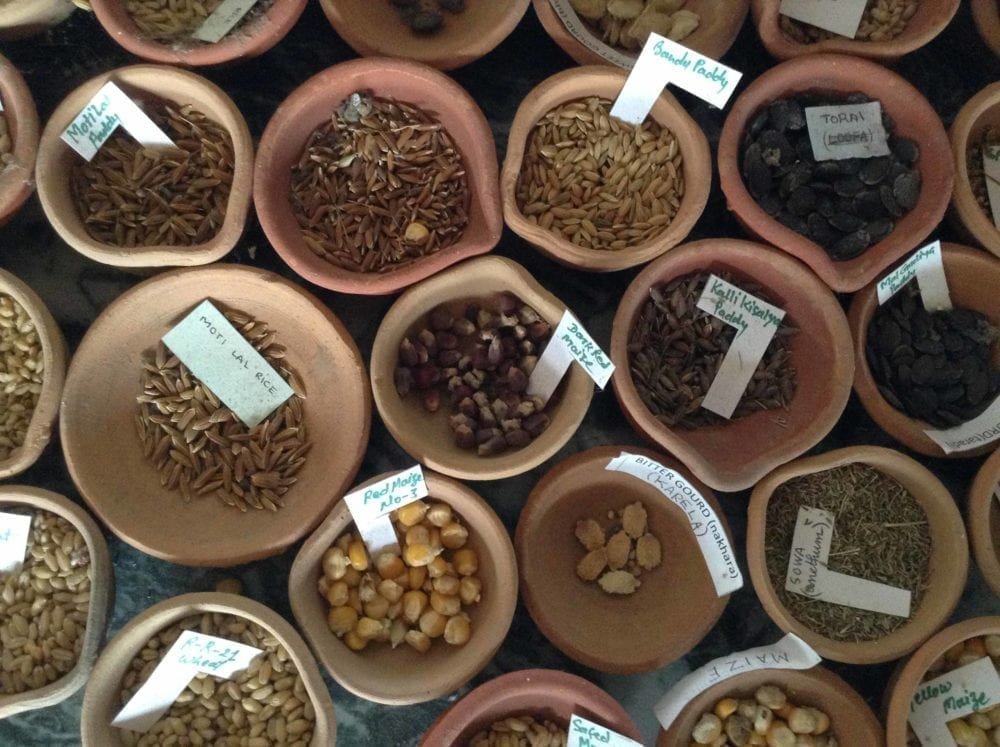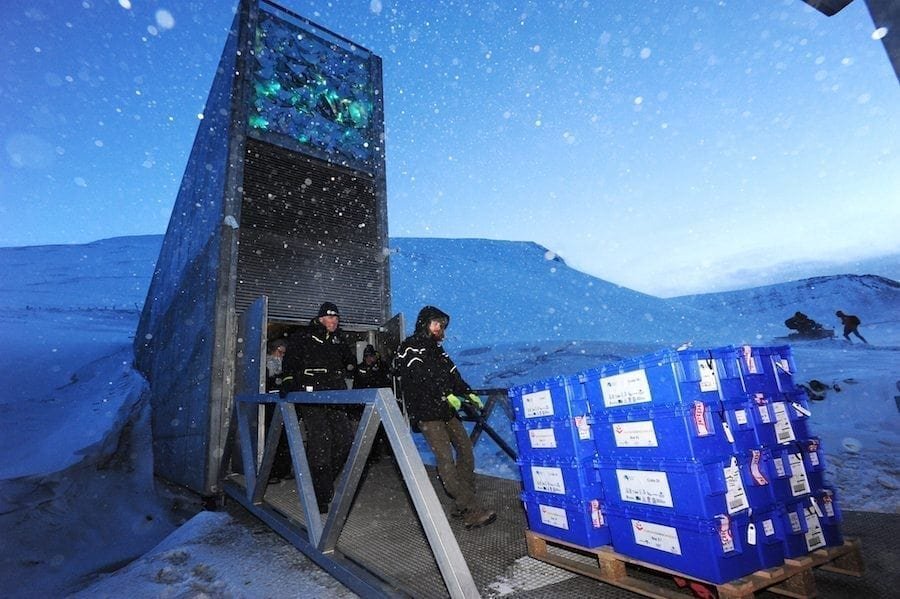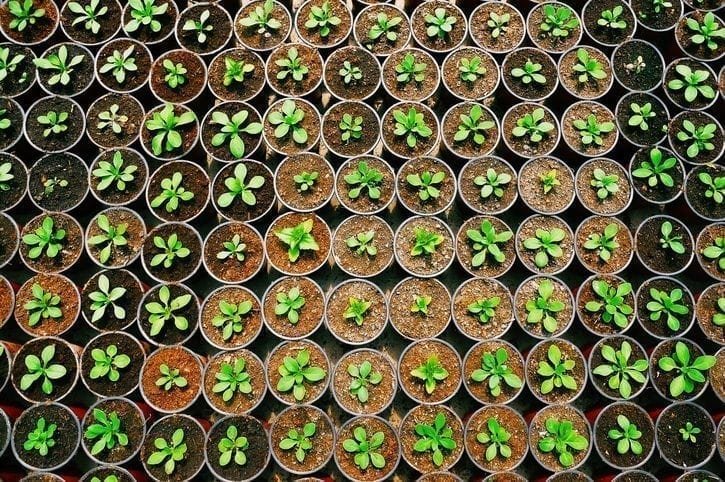The seeds, and the data collected alongside them, provide a unique resource for science and conservation, helping scientists to understand and respond to threats such as new pests and diseases, climate change and habitat loss.
As banked seeds live for many decades, they also provide a vital benchmark of current genetic diversity.
These seeds make a vital contribution to global targets such as the UN’s Sustainable Development Goals, in particular goal 2: zero hunger, goal 13: climate action and goal 15: life on land.
Frozen in time
The striking glass building, opened by HRH The Prince of Wales in 2000, houses an underground seed vault that is floodproof, bomb-proof, radiation-proof and has the capacity to hold up to three quarters of the world’s flora – but the MSB is much more than just a building.
It also represents a global network for biodiversity conservation with over 260 partnerships with institutions from 97 countries and territories across Africa, the Americas, Australia, Europe and the Middle East.
Partners range from universities and botanic gardens to government institutions and more. Since 2013, RBG Kew’s MSB staff have helped with the development of seven new, international seed banks, where facilities vary from basic to state of the art.
These important partnerships mean that, wherever possible, every species collected and banked in its native country is also duplicated at the MSB, so that every plant is safely stored in two different locations – the ultimate ‘insurance policy’.
The seeds, collected from nine of the world’s biogeographic regions and all 36 of its terrestrial biodiversity hotspots, are frozen in time, stored in air-tight glass containers stacked in huge -20°C freezers.
‘The Millennium Seed Bank is a truly international project, which brings together thousands of scientists across the world who all share a common love for plants and an ambition to ensure their conservation for future generations.’
DR ELINOR BREMAN
Senior scientist at RBG Kew’s MSB
A global project
Training and development have been crucial to the seed bank’s success and Kew scientists have delivered training programmes at the MSB and in countries across the globe for more than 2000 people from 61 different countries and territories.
Many of these people have gone on to manage seed banks which conserve their national and regional floras.
‘It is wonderful to be part of a worldwide conservation project and to be able to safeguard our species from total extinction. We have received so much support from the MSB including funds, training and guidance so that we can store our flora for the long term. It is a great feeling when you find a species that you have been searching for and can finally be sure that it is safely banked for the future.’
VICTORIA WILMAN
Conservation Coordinator at South African National Biodiversity Institute and partner of the MSB
The MSB has also been vital in protecting UK native species and earlier this year celebrated banking 13 million seeds from over 10,000 native UK trees and shrubs.
This collection, made by the UK National Tree Seed Project, funded by players of People’s Postcode Lottery, offers future possibilities for both research and conservation of UK woodlands.
 Play Video about This Rock Might Just Save The World
Play Video about This Rock Might Just Save The World Play Video about Play 2 hours of rock
Play Video about Play 2 hours of rock Play Video about Play 2 hours of brook
Play Video about Play 2 hours of brook Play Video about Play 2 hours of sheep
Play Video about Play 2 hours of sheep















































